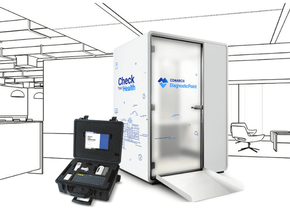How is the rise in AI use impacting insurance?

Edward Halsey, COO and Co-Founder of Taveo, the efficient insurers running on tech-driven solutions, shares insight with InsurTech Digital.
How is AI and machine learning automating customer service in insurance, and how is it improving the chatbot/automated telephone experience?
For Taveo, the rise of AI and machine learning is not about replacing human beings, but about refocusing them on high value tasks. Customer service should be “digital when you want it, human when you need it”. We believe that by having technology automate and take care of the mundane, repetitive tasks, insurers are afforded the time to provide the kind of service customers deserve. ChatBots and automated telephone calls can be useful and serve a function, but the key is to give the customer the choice of how they communicate with their insurance brokers and not force them down any path that is suboptimal for their personal needs and preferences.
How is AI boosting personalising sales? And do embedded insurance offerings help with bespoke sales offers?
The opportunity here lies with the ability to truly get “under the hood” of a customer’s day to day operations and understand the exposures they have in real-time. The entire concept of an annual renewal is something we need to question. Instead, we should enable customers to regularly review what they need from an insurance package, rather than worry about changes to their annual insurance costs. The first priority should always be ensuring the right cover is in place. Embedding insurance into businesses everyday operations and automating and interpreting the flow of data associated with that process must be a priority for our sector. At Taveo, we believe that accurate insurance starts and ends with data points and more importantly the regularity of receiving said data.
How is AI making claims processes more efficient?
The biggest problem with claims is that the longer they take to resolve, the more they end up costing. Innocuous claims can haunt customers’ claims experiences for years if they’re not dealt with quickly – particularly when you consider things like credit hire.
Fundamentally, the impact of AI in claims can be split into five key contributions; automated claims processing, fraud detection, natural language processing, predictive analysis and customer service chatbots. However, it’s in the automation of claims processing and customer service chatbots where the real efficiency gains are occurring, as insurers are then not bound by working hours and human resource. Consequently, customers can get real-time updates on their claims at any time and any place. That said, there’s a balance to be struck. There are stages in the claims process when customers will prefer speaking with an expert and there are other parts of the delivery process that can be almost entirely automated for optimal efficiency.
Is AI making policy management more easy/digestible?
Is it now? Partially. Will it? Undoubtedly. You need only feed your policy documentation into the more sophisticated generative AI platforms and begin asking it questions about your cover to understand how much more accessible AI will make policy wordings to customers. My favourite prompt remains “explain this to me like I’m a child” – the most complex ideas can be turned into easy-to-understand explanations, in any language. The language barrier along for non-native English speakers could prove invaluable for the 1.5% of the population with limited English.
Equally, imagine a world in which predictive analytics identifies an impending flood event, for example, and automated content is then sent to clients advising them of the fact and giving them proactive advice on how to prepare and minimise losses in the event of a claim. All without human intervention. Now imagine motor fleets, where automated messages to company fleet managers can be predicting the impact that specific driver’s behaviours will have on their next renewal. These functionalities will enable our sector to focus on the bigger picture, beyond pricings and manual tasks, and toward optimally protecting our customers.
What about quote generation?
Quote generation will significantly transform the way underwritings are conducted – there is simply no way that the singular experience of one underwriter, full of human and confirmation bias, can ever be as impactful as the collective knowledge base of ten of thousands of underwriters backed up by data. What is perhaps most exciting in quote generation and AI is the potential for truly dynamic pricing models that rise and fall in real-time based on risk criteria – similar to how a mortgage tracker might work. The implementation of AI removes all of the manual process and can match frequent changes and alterations that are entirely scalable, harnessing immense amounts of data to do so accurately and efficiently.
Is it still important to retain a balance between technological upgrades to customer service and maintaining a human touch? Where should the line be drawn?
It’s not just important, it should be the primary focus.
There are so many things that our brains can do that computers simply cannot and may never be able to, so it’s about taking the things that make us special and that only we can do, and refocusing resource on those things – the high value tasks – where we can really make a difference. Everything else? Technology has to be the answer. It is not a case of replacing humans with technology, but instead augmenting them and empowering them with tools that enable them to do more, faster and more accurately.
For me, the line should be drawn with technology anywhere that the customer suffers – automation and technological advance should never be at the expense of the customer’s experience, or the value being delivered to them.
Consumer’s technology preferences are, today, changing at a rapid pace. How important is it that insurers see customer service automation as a practice in need of constant evolution?
Nothing in this world is static – we should be reviewing, evolving and improving everything within our businesses. If we’re not improving, we’re falling behind the competition. At Taveo, our approach to innovation is not that of a single killer blow or a big bang moment, but continuous incremental improvements to our technology and processes – death of wastage by a thousand efficient cuts! When we’re talking about customers, they are evolving themselves, so the very notion that we could set an automated process and leave it for the next ten years is more than a little problematic. We should be drawing data-driven insights and have a constant feedback loop in play to ensure we are listening to our customers and putting their preferences at the centre of everything we do.
************************************************
For more insights from InsurTech Digital, you can see our latest edition of the InsurTech Digital here, or you can follow us on LinkedIn and Twitter.
You may also be interested in our sister site, FinTech Magazine, which you can also follow on LinkedIn and Twitter.
************************************************
BizClik is a global provider of B2B digital media platforms that cover Executive Communities for CEOs, CFOs, CMOs, Sustainability leaders, Procurement & Supply Chain leaders, Technology & AI leaders, Cyber leaders, FinTech & InsurTech leaders as well as covering industries such as Manufacturing, Mining, Energy, EV, Construction, Healthcare and Food.
BizClik – based in London, Dubai, and New York – offers services such as content creation, advertising & sponsorship solutions, webinars & events.
***********************************************






